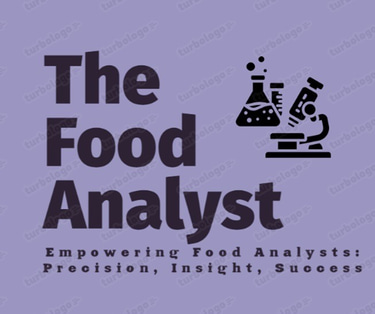"Empowering food analysts and laboratory professionals with expert insights, ISO 17025 resources, regulatory updates, industry testing requirements, training, and career opportunities for excellence in food testing."
Clause 6.6: Externally Provided Products and Services (Clause 6.6.1)
Clause 6.6.1 of ISO/IEC 17025:2017 ensures that laboratories control and evaluate externally sourced products and services that influence their testing or calibration activities. This maintains reliability, traceability, and compliance by requiring proper supplier selection, verification, and ongoing performance monitoring to prevent risks and ensure accurate, dependable results.
ISO 17025
4/13/20253 min read
Clause 6.6.1 of ISO/IEC 17025:2017 requires laboratories to manage the quality and suitability of externally sourced products and services that directly or indirectly affect their activities. This ensures reliable operations and accurate results, maintaining compliance with the standard.
What Does Clause 6.6 Cover?
The laboratory must ensure that external products or services meet required specifications when they:
(a) Are Incorporated into Laboratory Activities :Laboratory purchasing reagents for testing food for pesticide residues must ensure the reagents meet purity and reliability standards. If substandard reagents are used, the test results could be inaccurate, leading to potential risks for consumers or clients.
(b) Are Provided to Customers as Received from the Provider: Laboratory outsourcing microbiological testing to a specialized subcontractor must ensure that the subcontractor is competent and accredited. The results delivered by the subcontractor are directly passed on to the client, so their quality directly reflects on the laboratory's credibility.
(c) Support Laboratory Operations :The laboratory hires an accredited calibration service provider to perform periodic calibration of its analytical equipment e.g. Balance. This external service supports the laboratory’s operations by ensuring:
The balances provide precise and accurate measurements for tests.
The measurement results remain traceable to international standards (e.g., SI units).
Steps to Ensure Compliance with Clause 6.6
Supplier Evaluation and Selection
Laboratories must evaluate and approve external providers before procurement.
When purchasing certified reference materials (CRMs) for heavy metal testing , the laboratory should select suppliers accredited to ISO 17034 to ensure the materials' traceability and reliability.
Defining Clear Requirements
Laboratories should specify quality standards for products and services.A laboratory procuring PT (Proficiency Testing) services should ensure the provider meets ISO/IEC 17043 requirements, ensuring the test results are robust and comparable.
Verification of Incoming Goods and Services
Laboratories must inspect or verify external supplies upon receipt.If the laboratory receives glassware, they should inspect for defects such as cracks or incorrect volumetric markings before using it in testing.
Monitoring Ongoing Performance
Periodically review suppliers' performance to ensure continued compliance.Laboratory using a calibration service may periodically review calibration certificates to confirm traceability to international standards like NIST (National Institute of Standards and Technology).
Benefits of Effective Implementation
Improved Reliability: Ensures the laboratory's processes and results remain dependable. Using certified reagents leads to consistent analytical results in pesticide residue testing.
Enhanced Customer Confidence: Builds trust by demonstrating rigorous quality control. Submitting validated subcontracted results assures the client of accuracy and compliance.
Reduced Risks: Minimizes errors caused by substandard supplies or services. Avoiding equipment downtime or invalid results due to poor maintenance services. The laboratory hires an accredited calibration service provider to perform periodic calibration of its analytical balances. This external service supports the laboratory’s operations by ensuring:
The balances provide precise and accurate measurements for tests.
The measurement results remain traceable to international standards (e.g., SI units).
To comply with Clause 6.6, laboratories must maintain the following records to demonstrate effective control and management of external products and services:
1. Supplier and Provider Records
Approved Supplier List: A list of verified and approved external providers.
Supplier Evaluation Records: Documentation of the evaluation process, such as supplier evaluation, questionnaires, or performance reviews.
Supplier Contracts or Agreements: Copies of contracts detailing the terms of supply, including quality requirements and specifications.
2. Procurement Records
Purchase Orders: Documentation specifying requirements for the products or services being procured.
Specifications for External Products/Services: Detailed requirements for purchased items or services, such as purity standards for reagents or calibration tolerances for equipment.
3. Verification Records
Incoming Inspection Records: Logs or checklists verifying that received products or services meet required specifications (e.g., inspection reports for equipment, quality certificates for reagents).
Certificates of Analysis (CoA): For chemicals, reagents, and other consumables to ensure compliance with specifications.
Calibration Certificates: For equipment calibrated by external service providers, confirming traceability to international standards.
4. Performance Monitoring Records
Non-Conformance Reports: Records of issues or failures with external products or services and corrective actions taken.
Supplier Performance Reviews: Periodic assessments of supplier reliability, timeliness, and product/service quality.
5. Traceability and Support Records
Traceability Documentation: Records ensuring traceability of materials, equipment, or services to their origin (e.g., traceability to NIST standards for calibration services).
Service Reports: Documentation from external service providers for maintenance, repairs, or calibrations conducted.
© 2025. All rights reserved. All content on this website is the intellectual property of The Food Analyst. Unauthorized use or reproduction is prohibited.
Contact Us
The Food Analyst Team
We are available in multiple locations:
Bangalore | Delhi | Mumbai
Email for editorial: contact@foodanalyst.in
For advertisement: inquiryfoodanalyst@gmail.com
